We have assembled an outstanding group of individuals who come from across the country to serve as an External Advisory Board for the BCMB department.
Purpose
The purpose of the board is to provide input on our departmental mission and goals and to give feedback on a variety of issues regarding our curriculum, our preparation of students for future careers, the research activities in the department, and our outreach activities.
Members
Donald L. Akers Jr., MD, FACS
Donald L. Akers Jr., MD, FACS is a practicing vascular and general surgeon in Knoxville, TN. After graduating from UT-Knoxville, he obtained his MD from the University of Tennessee Health Science Center in Memphis. He pursued his residency in General Surgery from Tulane University in New Orleans. His fellowships were in Vascular Surgery at the University of Cincinnati and in Endovascular Surgery at the UT Medical Center in Knoxville. Dr. Akers is Board Certified by the American Board of Surgery in General Surgery and Vascular Surgery. He is a Fellow with the American College of Surgeons. He joined Premier Surgical Associates following extended service as a Professor in the Department of Surgery at Tulane University from 1991-2007.
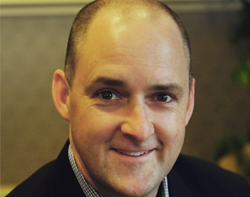
William G. Beasley, BS, CCRP
William G. Beasley, BS, CCRP is the Vice President of Clinical Affairs and Data Management, and Business Leader at Wright Medical NV, located in Franklin, Tennessee. He received a bachelor’s in biology (cum laude) from UT. Mr. Beasley led the orthopedic program resulting in Pre-market application (PMA) approvals for three drug-device combination products incorporating recombinant growth factors, as well as regulatory approvals in other countries. Mr. Beasley’s clinical trial therapeutic experience includes CNS (Multiple Sclerosis, migraine); dermatology (psoriasis) orthopedics, periodontics, tissue engineered therapeutics, and in vitro diagnostics. He has certifications and memberships in the Certified Clinical Research Professional (CCRP), the Drug Information Association (DIA), the Association of Clinical Research Professionals (ACRP), and the Society of Clinical Research Associates (SoCRA). His awards and honors include Phi Beta Kappa, Golden Key National Honor Society, Phi Eta Sigma Honor Society, and Order of Omega.
Dave Collins
Dave Collins is Vice President Research, Delivery and Device R&D at Eli Lilly and Co. He received his B.S. (Biology) from the College of William and Mary and earned his Ph.D. (Biochemistry) from University of Tennessee. Dave did his post-doctoral training at Washington University Medical School where he studied the processing and presentation of particulate antigens by macrophages and dendritic cells. In 1991, he joined Amgen where his work focused on delivery of macromolecules including recombinant proteins, oligonucleotides, and plasmid DNA. In 1998, he joined Eli Lilly & Co., as a Research Scientist and made key contributions to small molecule design, delivery and development. He established Lilly’s Developability paradigm, which has improved the probability of success for Lilly’s drug pipeline and his efforts have created a strong and collaborative Discovery-Development interface. During his time at Lilly, Dave led the Biopharmaceutics and Drug Delivery division (2001-2006) and was Sr. Director Pharmaceutical Sciences (2006-2012) and Sr. Director CMC Project Management from 2012-2014. Since 2014, he has provided technical leadership in Lilly’s Delivery and Devices R&D organization. His team led the establishment of Lilly’s prefilled syringe platform, which is a central component of products such as Trulicity, Mounjaro, Zepbound, Taltz and Emgality. His work in injection physiology has driven innovations in subcutaneous drug development and informed novel device and delivery system designs. He was a key leader in the establishment of Lilly’s Cambridge Innovation Center and serves as a strategic advisor for the Lilly Institute for Genetic Medicines (Boston, Seaport). He has served on the Advisory Boards for the Michigan Translational Research and Commercialization (MTRAC) committee (2017-2020) and Trask Innovation Fund at Purdue University (2019-2022). He is a member of the Joint Steering Committee for the Lilly-Purdue Strategic Research collaboration and was a founding member and President (2019-2023) of the Subcutaneous Drug Development and Delivery Consortium.
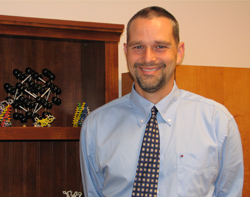
Ricky Cox
Ricky Cox is Professor of Chemistry and the Anna S. Brown and Ruth B. Logan Endowed Chair in Pre-Medicine at Murray State University in Murray Kentucky. He received his doctorate in Biochemistry from the University of Tennessee in 1997. Dr. Cox joined the faculty at Murray State in 1999 where he has researched antibiotic resistance and protein biochemistry. His research has been funded by the National Science Foundation, Kentucky Biomedical Research Infrastructure Network, American Chemical Society, Hewlett-Packard and Microsoft. Additionally, he has taken an active role in technology-based teaching techniques and has won numerous awards for teaching excellence such as Outstanding College or University Teacher by the Kentucky Academy of Science and Board of Regents Award for Teaching Excellence for the College of Science, Engineering and Technology. He helped create a Pre-Health Professionals Program at Murray State and currently serves on the Editorial Board of Biochemistry and Molecular Biology Education, an international journal aimed to enhance teacher preparation and student learning in Biochemistry, Molecular and Cellular Biology.
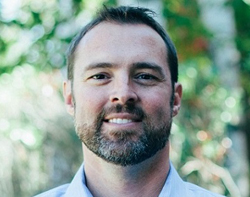
Shannon Eaker
Shannon Eaker received his PhD from the University of Tennessee, Knoxville. After scientist/teaching positions at Los Alamos National Lab, Millipore and Tusculum College, he joined General Electric and has been there for 10 years. His expertise is around T-cell, HSC, and ES/iPSC cell biology. He is a member of the International Society for Cell Therapy (ISCT) Process and Product Development (PPD) committee, and has authored numerous papers within the field of cell biology and manufacturing. He is currently the Global Technical a Leader within GE’s Cell and Gene Therapy Enterprise Solutions group. Shannon lives with his wife and 2 kids in Knoxville, TN.
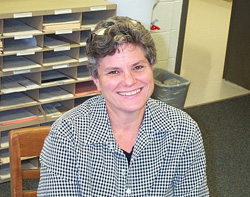
Mary Kot
Mary Kot, professor of biology and former chair of Biology from 2003 until 2010 has been at Mercer University since 1991. She is currently the director of Global Health Systems and was the director of Scientific Inquiry Program at Mercer University from 2002 to 2003. She received her PhD from UT. Her specialty is cell biology and her research interest is the contribution of Candida albicans to biofilm formation. Kot has written a paper, “The Hungry Gene as a Core Text in a Freshman Learning Community” that was included in The Place of Core.
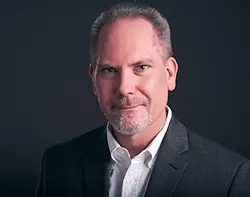
John Lamerdin
John Lamerdin is currently IP counsel for a startup biopharma company. John was previously Executive Director and Intellectual Property Counsel at Allogene Therapeutics in South San Francisco, California. Prior to his time at Allogene John was Executive Director, IP Law and Litigation at Kite Pharma in Santa Monica, California, which was acquired by Gilead Sciences. Before joining Kite, John was Head of Patents, Biosimilars at Boehringer Ingelheim, in Ingelheim, Germany. John joined Boehringer Ingelheim from Amgen, where he was Senior Counsel in the Intellectual Property and Litigation group of Amgen, Inc. in Thousand Oaks, California. Previously, he was Patent Counsel in the Patent Department of Bristol-Myers Squibb Co in Princeton, New Jersey. Before practicing as an in-house intellectual property attorney, John was an associate attorney with Jenkins & Wilson, an intellectual property law firm in Durham, North Carolina. John earned his PhD in the Department of Biochemistry at UT, working in the lab of Dr. Engin Serpersu. John also holds a JD from Franklin Pierce Law Center in Concord, New Hampshire, and an MS in chemistry (concentration in biochemistry) from San Francisco State University in San Francisco, California. He completed his undergraduate studies at the University of Redlands in Redlands, California, where he earned a BS in chemistry and a BA in philosophy. He is licensed by the US Patent and Trademark Office and in various state and federal courts. He focuses his practice on biopharmaceutical and biotechnology intellectual property matters.
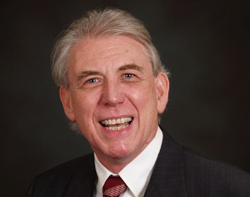
Ron Michaels
Ron Michaels is Technical Director and Co-Founder of Phenotype Screening Corporation. Ron has a PhD in Engineering Science with interests in Artificial Intelligence, Image Analysis, Pattern Recognition, Optimization, and Algorithmic Development. Ron brings a broad background in Development, Construction, and R&D to his work.
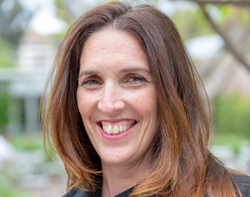
April Pyle
April Pyle is a Professor and Vice Chair in Department of Microbiology, Immunology and Molecular Genetics, and a member of the Eli and Edythe Broad Center of Regenerative Medicine and Stem Cell Research (BSCRC) at UCLA. Dr. Pyle completed her postdoctoral fellowship work with Peter Donovan in 2006 at Johns Hopkins University and obtained her Ph.D. with Dr. Mary Ann Handel from the University of Tennessee, Knoxville in 2002. Dr. Pyle’s lab uses multi-disciplinary approaches to study human pluripotent stem cell biology and differentiation of these cells for use in regenerative medicine. Dr. Pyle’s lab studies both basic aspects of stem cell biology, reprogramming, and muscle development as well as more translational aspects of human pluripotent stem cell differentiation towards skeletal muscle for use in therapeutic approaches for patients with Duchenne Muscular Dystrophy (DMD). Human pluripotent stem cells have enormous potential for use in regenerative medicine, in patient-specific screening and as a model for understanding human development. A main focus of the lab is interested in understanding how skeletal muscle progenitor cells arise in human development and generation of CRISPR correction strategies for DMD. We are developing approaches to directly deliver CRISPR components in vivo as well as combining gene editing and muscle progenitor cells for restoring muscle function in DMD. Dr. Pyle is also co-founder of MyoGene Bio which aims to develop a therapeutic CRISPR/Cas9 platform designed to restore the reading frame of the DMD gene. Her work is funding by NIH, CDMD, CIRM, BSCRC, and CTSI. Dr. Pyle is currently a standing member of the NIH Skeletal Muscle Study Section (NIAMS/SMEP). Dr. Pyle has received many awards including the UCLA Life Sciences Faculty Excellence Award, the Rose Hills Foundation Scholar and the Ablon Scholars Award.
Michael Vaughn
Michael Vaughn earned his Ph.D. at Arizona State University. He was an undergraduate at the UT-Knoxville and after earning his BS in Biochemistry, he worked for several years as a research specialist in the lab of Barry Bruce. In 2016 he became a Staff Scientist with Bio-Logic based in Knoxville, and in 2018 became Product Development Scientist for a spinoff, Spectrologix, focusing on kinetic spectroscopy.
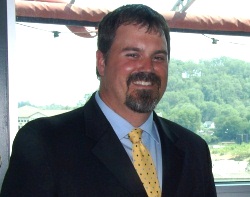
Jason Grant Williams
Jason Grant Williams earned his PhD in biochemistry and biophysics in 2001 at the University of North Carolina at Chapel Hill after graduating from the biochemistry department at UT in 1996. Since 2004 he has been working for the National Institute of Environmental Health Sciences as the director of the Protein Microcharacterization Core Facility (PMCF). He manages both the scientific and administrative operations of the PMCF by overseeing personnel, budget, and scientific projects. Williams also completed his postdoctoral fellowship with NIEHS where he elucidated the antigenic surfaces of HIV p24 using limited proteolysis, chemical modification, and mass spectrometry, and also performed initial experiments into the investigation of the tertiary structures of other proteins using chemical modification and mass spectrometry.
Williams developed a unique method of sample purification, concentration, and introduction into a mass spectrometer for analyses of proteins and peptides. Some of his current memberships are with the Association of Biomolecular Resource Facilities, the American Chemical Society, the American Society for Mass Spectrometry, and the Triangle Mass Spectrometry Discussion Group. He has received a number of awards, one being the NIH/NIEHS Performance Award, which he received in 2007, 2008, twice in 2009, and 2010. He also received awards from the Merit Scholarship and the Andrew Holt Scholarship from UT.
